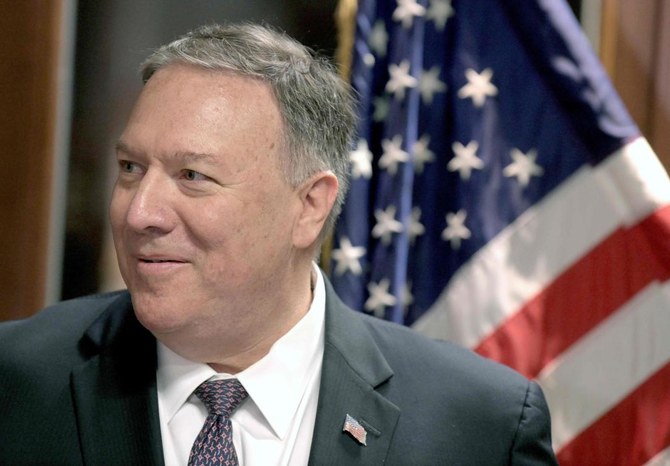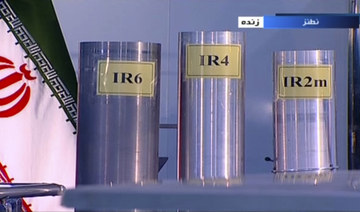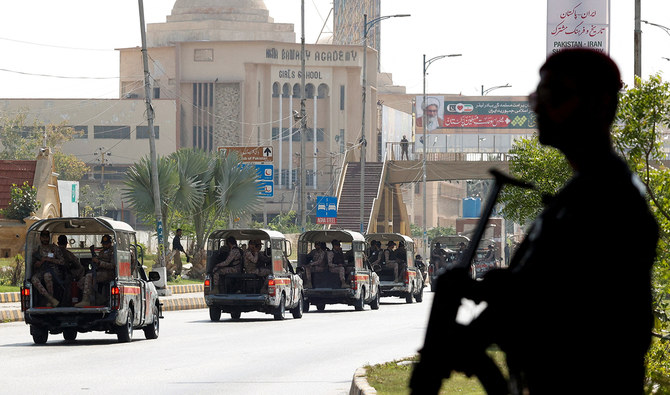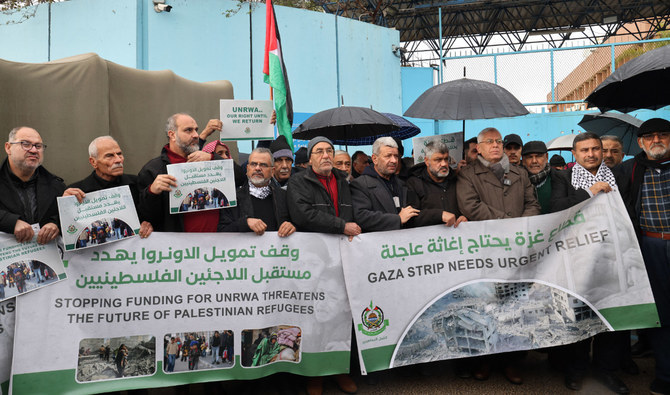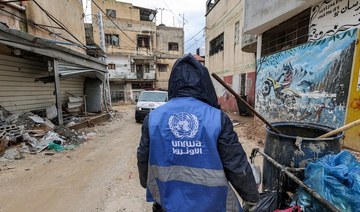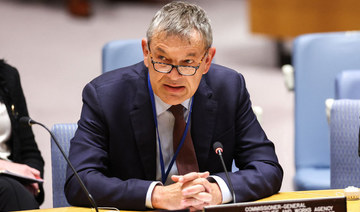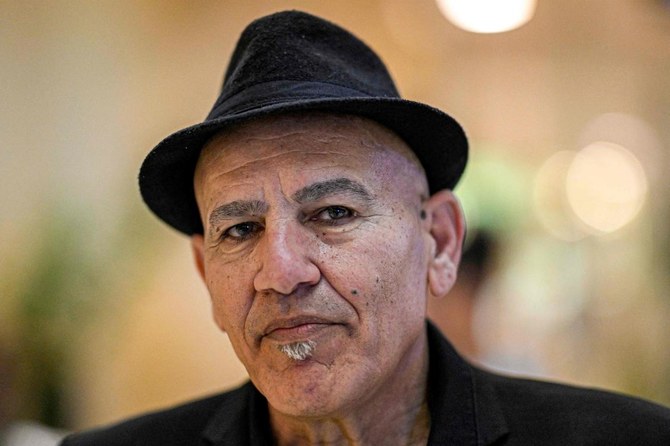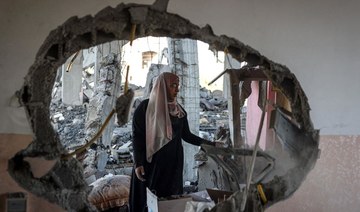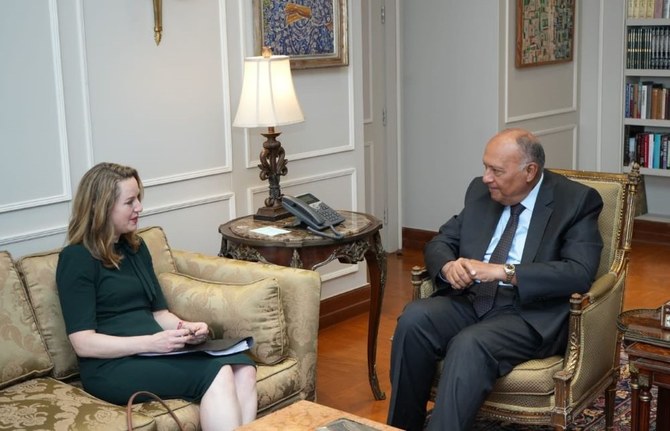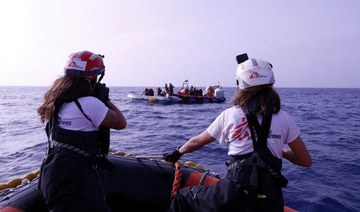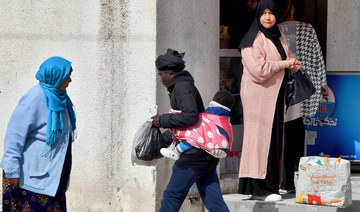TEHRAN: Iran resumed uranium enrichment at its underground Fordow plant south of Tehran Thursday in a new step back from its commitments under a landmark 2015 nuclear deal, raising alarm from Western powers.
Engineers began feeding uranium hexafluoride gas into the plant’s mothballed enrichment centrifuges in “the first minutes of Thursday,” the Iranian Atomic Energy Organization said.
The suspension of uranium enrichment at the long-secret plant was one of the restrictions on its nuclear program Iran had agreed to in return for the lifting of sanctions.
Iran’s announcement that it would resume enrichment at the Fordow plant from midnight (2030 GMT Wednesday) had drawn a chorus of concern from the remaining parties to the troubled agreement.
Britain, China, France, Germany and Russia have been trying to salvage the hard-won deal since Washington abandoned it in May last year and reimposed crippling unilateral sanctions.
They say Iran’s phased suspension of its obligations under the deal since May makes that more difficult.
The resumption of enrichment at Fordow is Iran’s fourth step away from the agreement.
The United States called for “serious steps” to be taken in response to the move.
“Iran’s expansion of proliferation-sensitive activities raises concerns that Iran is positioning itself to have the option of a rapid nuclear breakout,” US Secretary of State Mike Pompeo said in a statement.
“It is now time for all nations to reject this regime’s nuclear extortion and take serious steps to increase pressure.”
Uranium enrichment is the sensitive process that produces fuel for nuclear power plants but also, in highly extended form, the fissile core for a warhead.
Iran is now enriching uranium to 4.5 percent, exceeding the 3.67 percent limit set by the 2015 deal but less than the 20 percent level it had previously operated to and far less than the 90 percent level required for a warhead.
Iran has always denied any military dimension to its nuclear program.
It has been at pains to emphasize that all of the steps it has taken are transparent and swiftly reversible if the remaining parties to the agreement find a way to get around US sanctions.
“All these activities have been carried out under the supervision of the International Atomic Energy Agency,” the Iranian nuclear organization said.
Tehran said on Thursday that it had withdrawn the credentials of one IAEA inspector last week after she triggered an alarm at the gate to Iran’s other enrichment plant at Natanz, raising suspicion she was carrying a “suspect product.”
It did not specify what the product was or whether it had actually been found in the inspector’s possession.
After a special meeting on Iran held at the watchdog’s headquarters in Vienna, the EU said in a statement that it was “deeply concerned” by what took place, but understood “that the incident was resolved.”
Reiterating the EU’s “full confidence in the inspectorate’s professionalism and impartiality,” the statement called “upon Iran to ensure that IAEA inspectors can perform their duties in line with its legally binding safeguards agreement.”
The IAEA meanwhile complained that the inspector had last week been briefly prevented from leaving Iran.
Cornel Feruta, the watchdog’s Acting Director General, “informed the... Board of Governors that an Agency inspector was last week temporarily prevented from leaving Iran,” a statement by the agency said.
“Preventing an inspector from leaving a country, particularly when instructed to do so by the Agency, is not acceptable and should not occur,” Feruta said.
The resumption of enrichment at Fordow comes after the expiry of a deadline Tehran set for the remaining parties to the nuclear agreement to come up with a mechanism that would allow foreign firms to continue doing business with Iran without incurring US penalties.
Russian Foreign Minister Sergei Lavrov expressed concern about Tehran’s announcements but said European powers should do their part.
“They are demanding that Iran fulfil all (obligations) without exception but are not giving anything in return,” he told reporters in Moscow.
The Kremlin has previously called sanctions against Iran “unprecedented and illegal.”
French President Emmanuel Macron said Iran had made “grave” decisions and its resumption of uranium enrichment was a “profound change” from Tehran’s previous position.
The next few weeks will be dedicated to increasing pressure on Iran to return within the framework of the pact, the French president said during a trip to Beijing, adding that this must be “accompanied by an easing of some sanctions.”
“A return to normal can only take place if the United States and Iran agree to reopen a sort of trust agenda” and dialogue, Macron said, adding that he would discuss the issue with US President Donald Trump.



